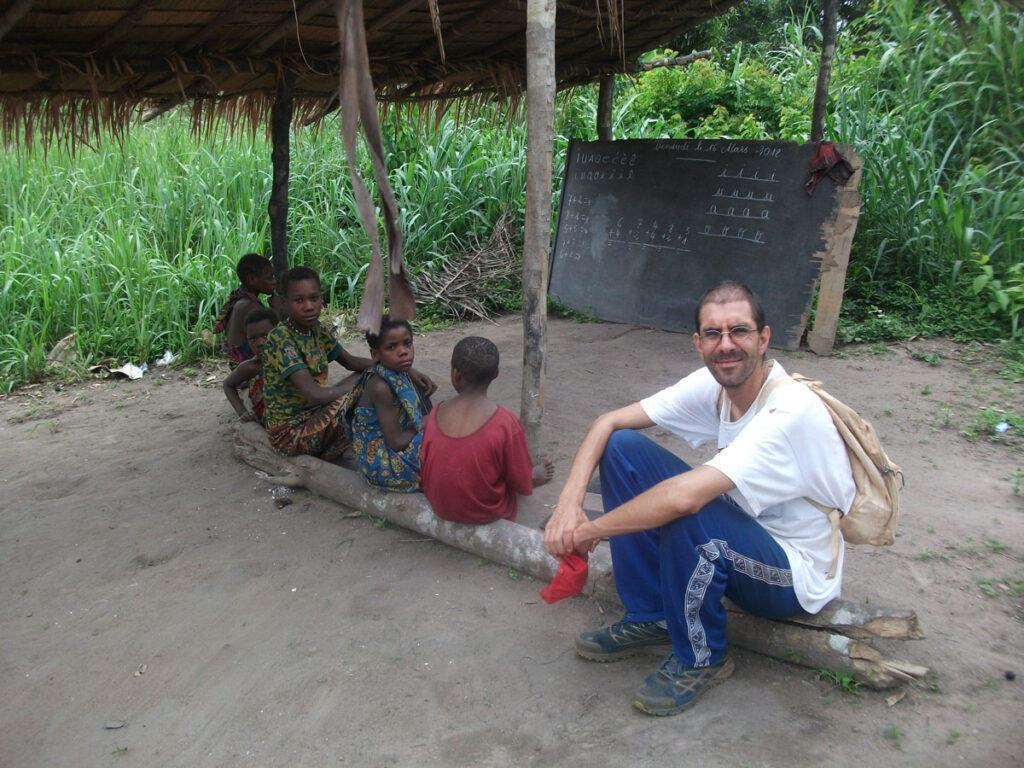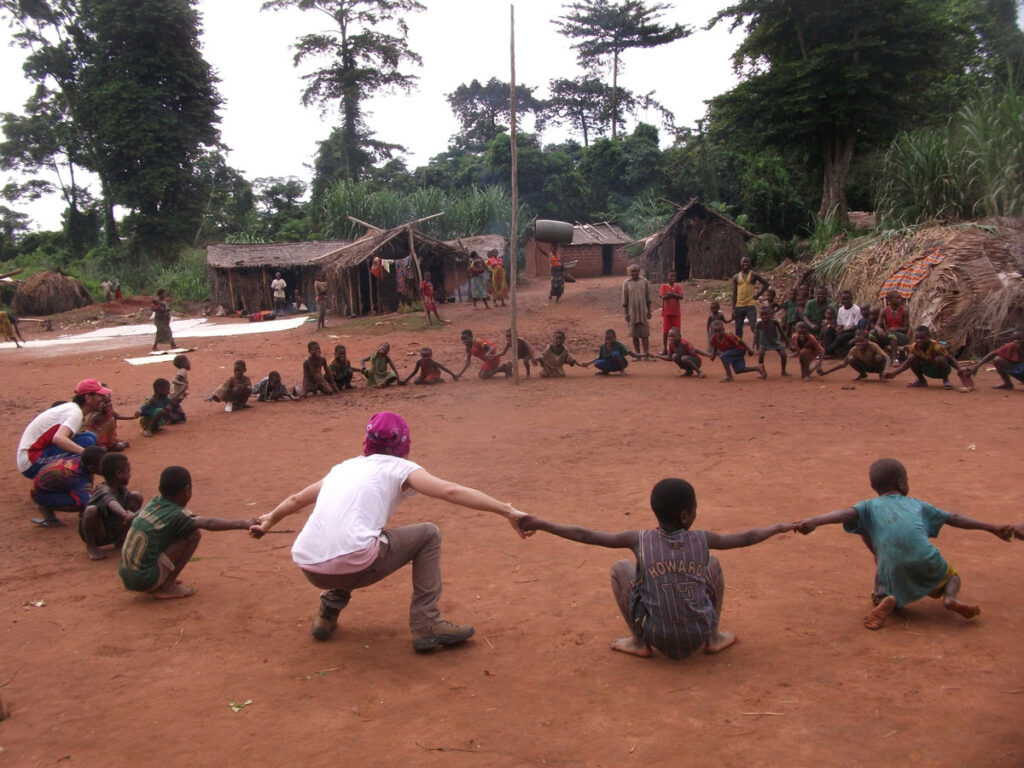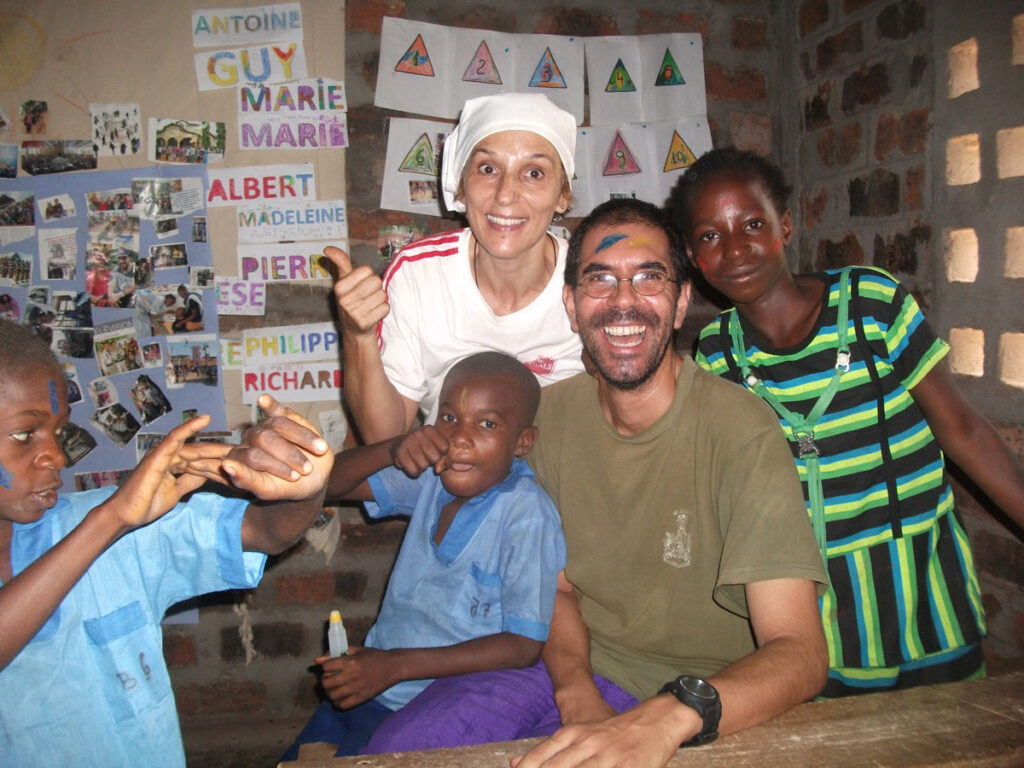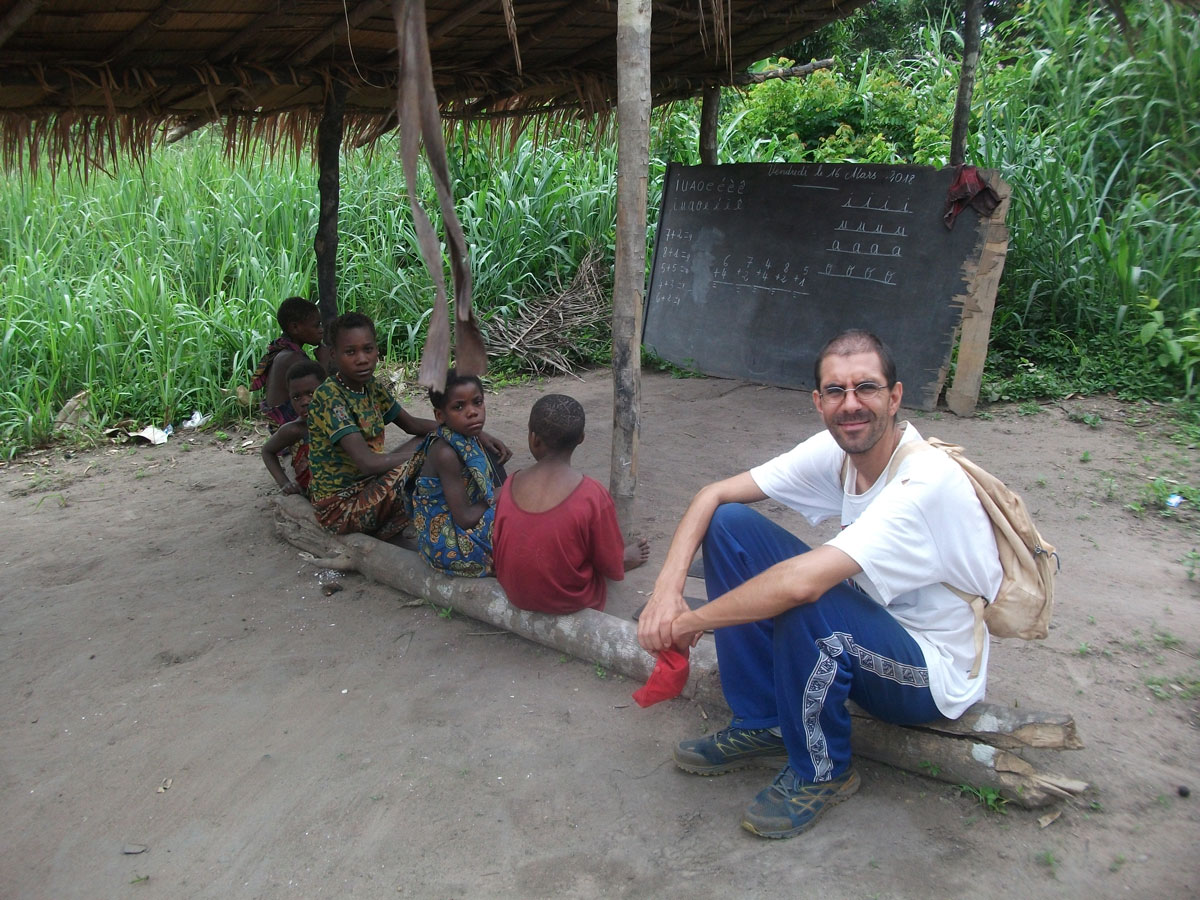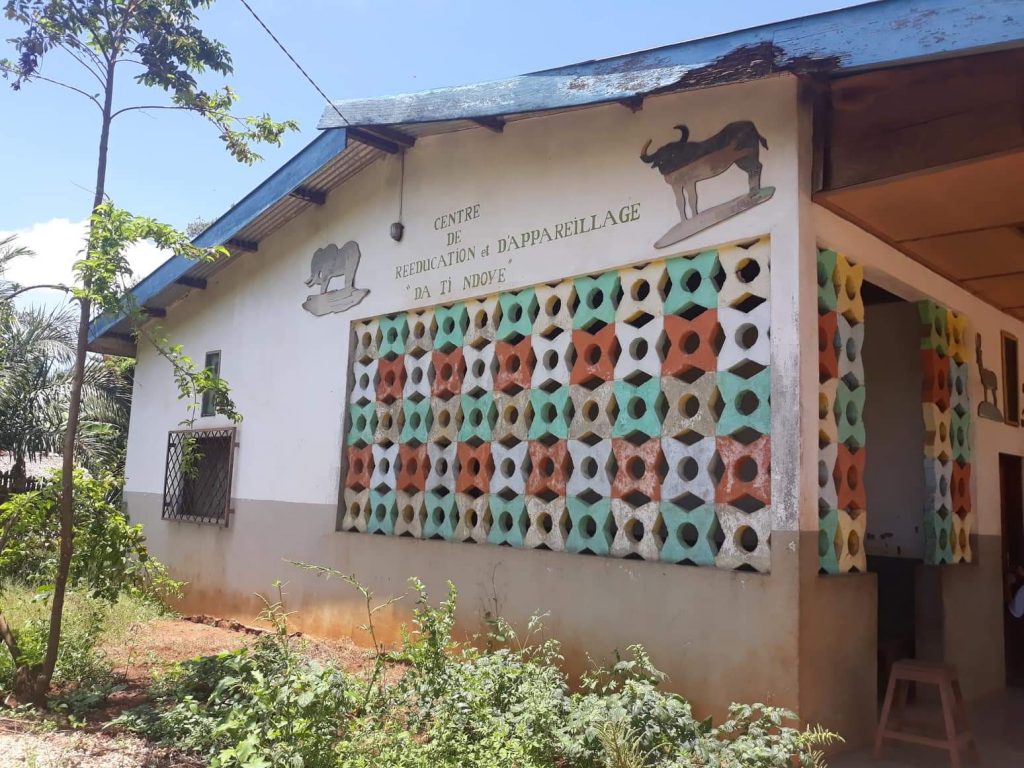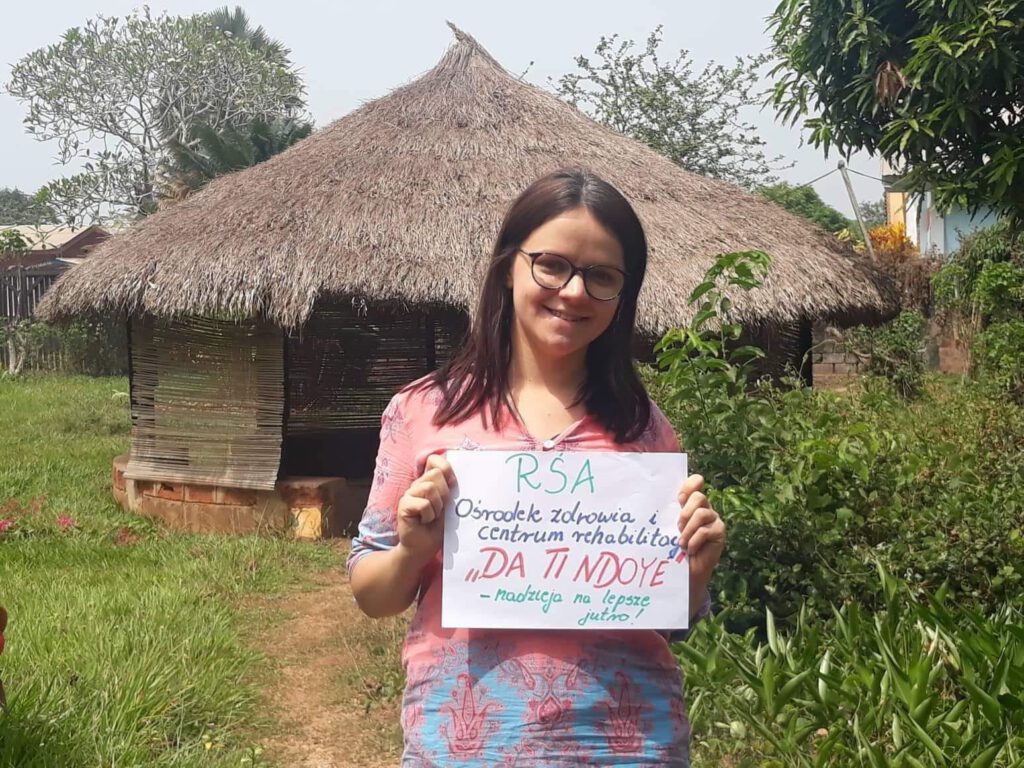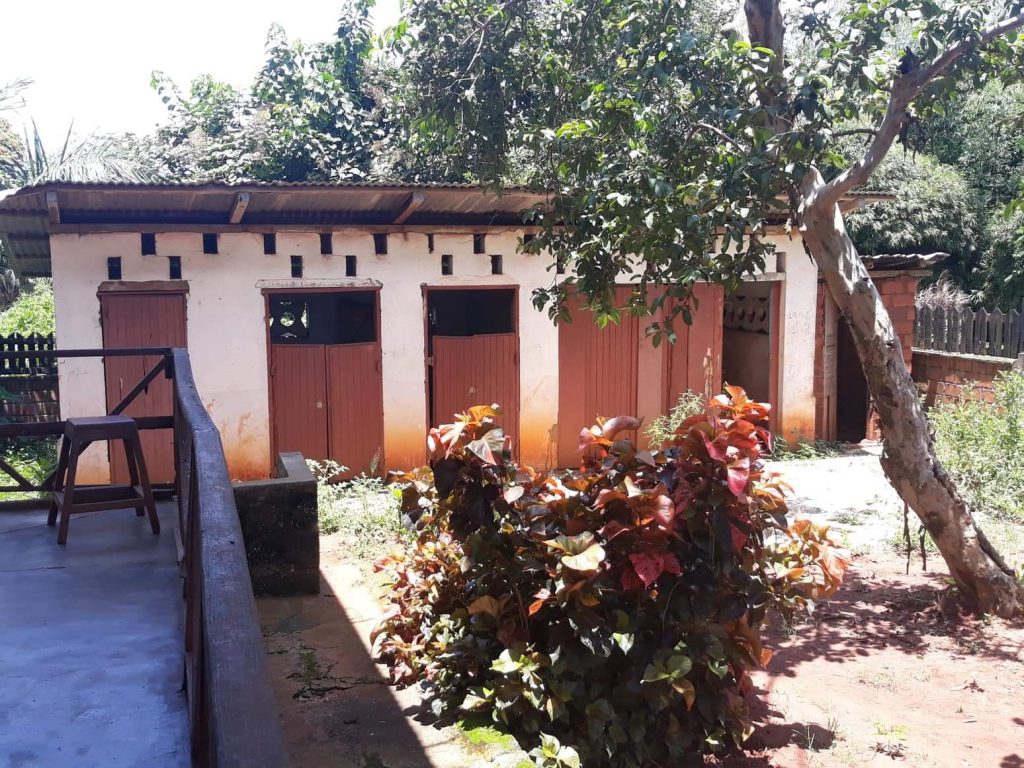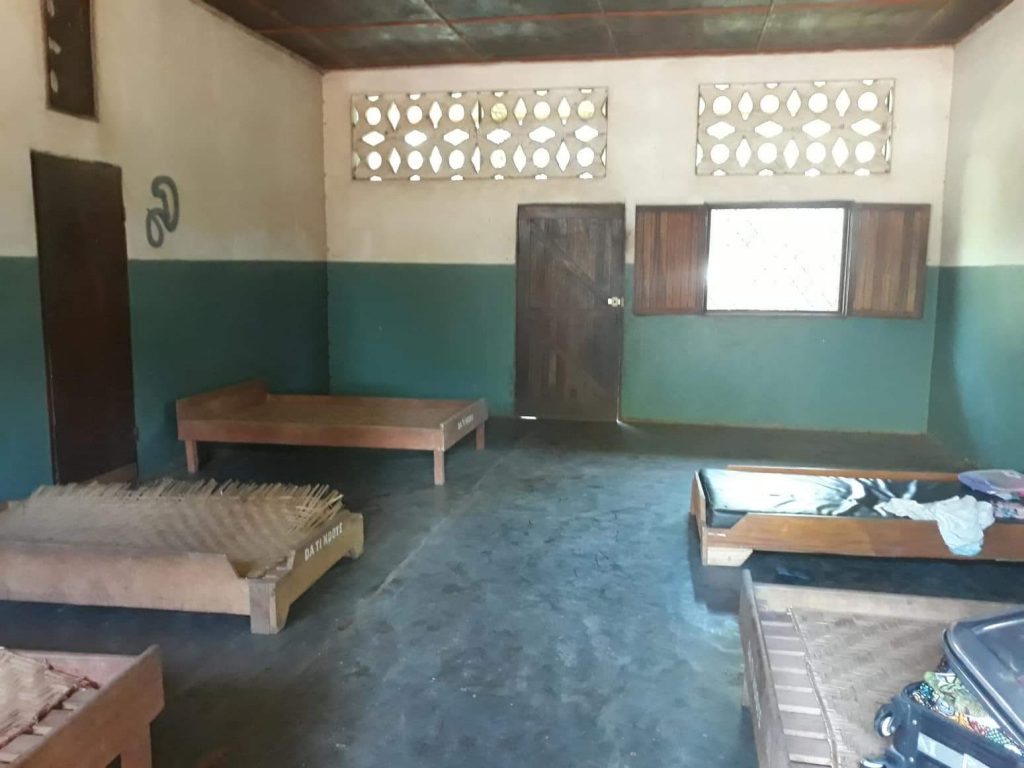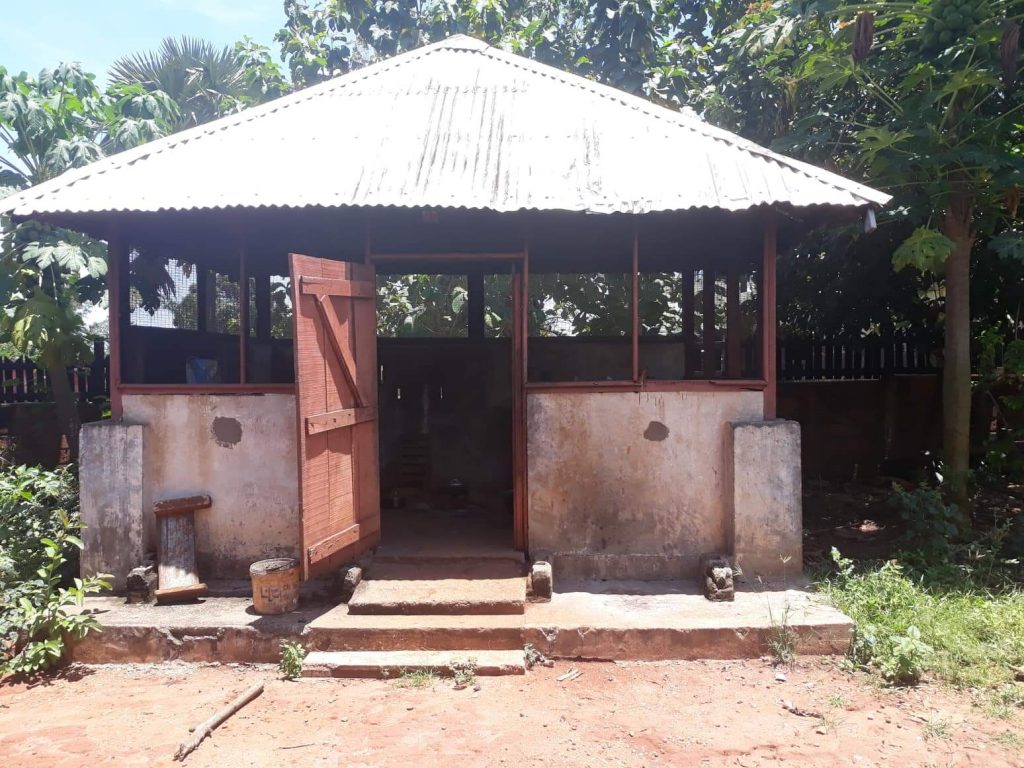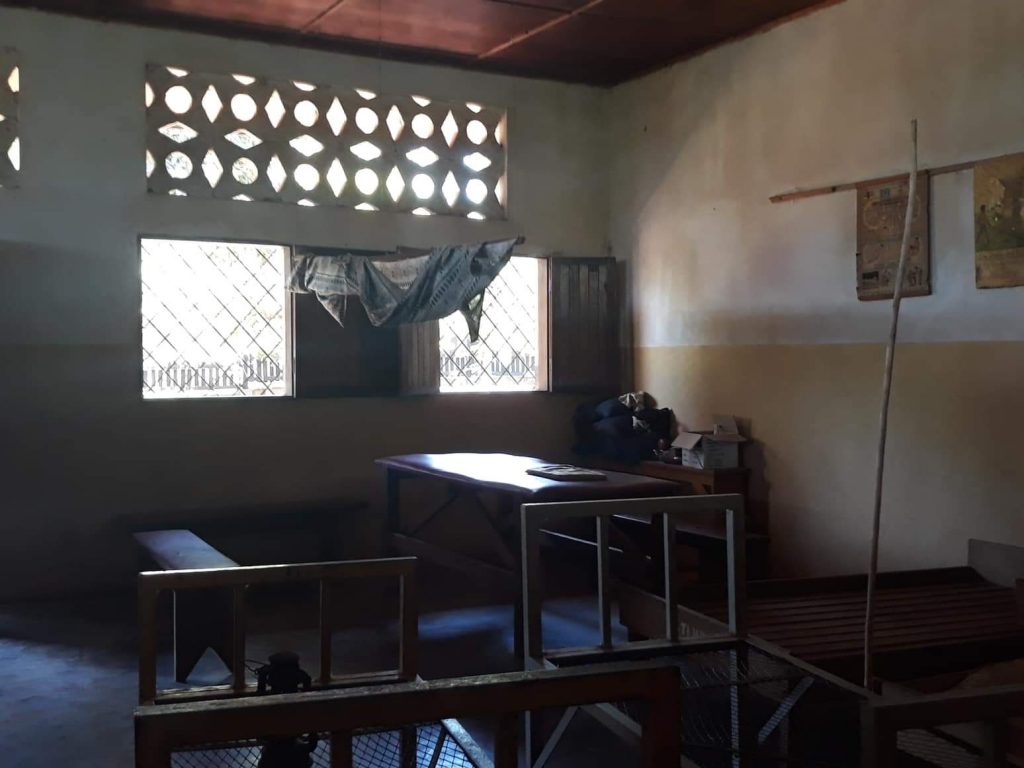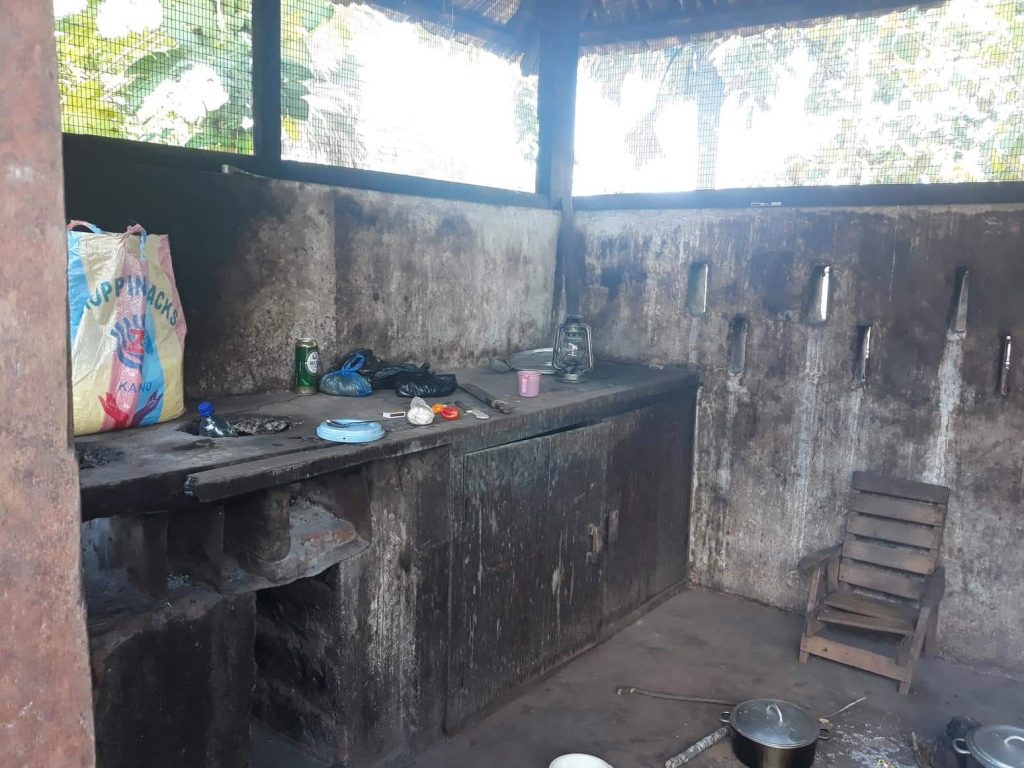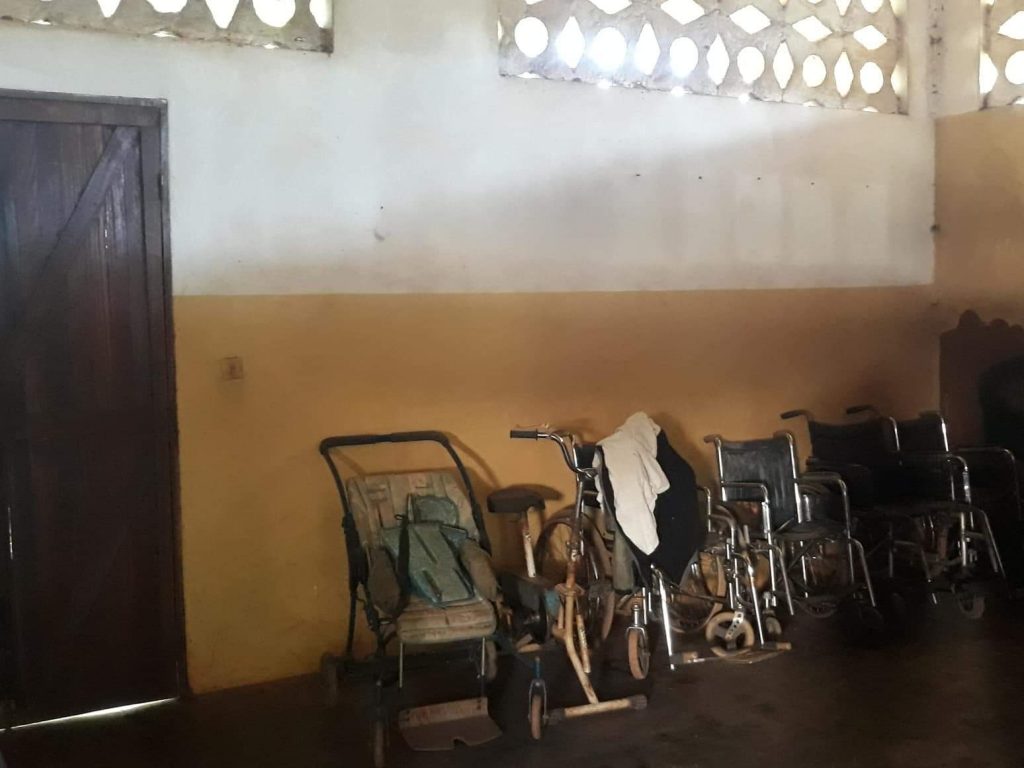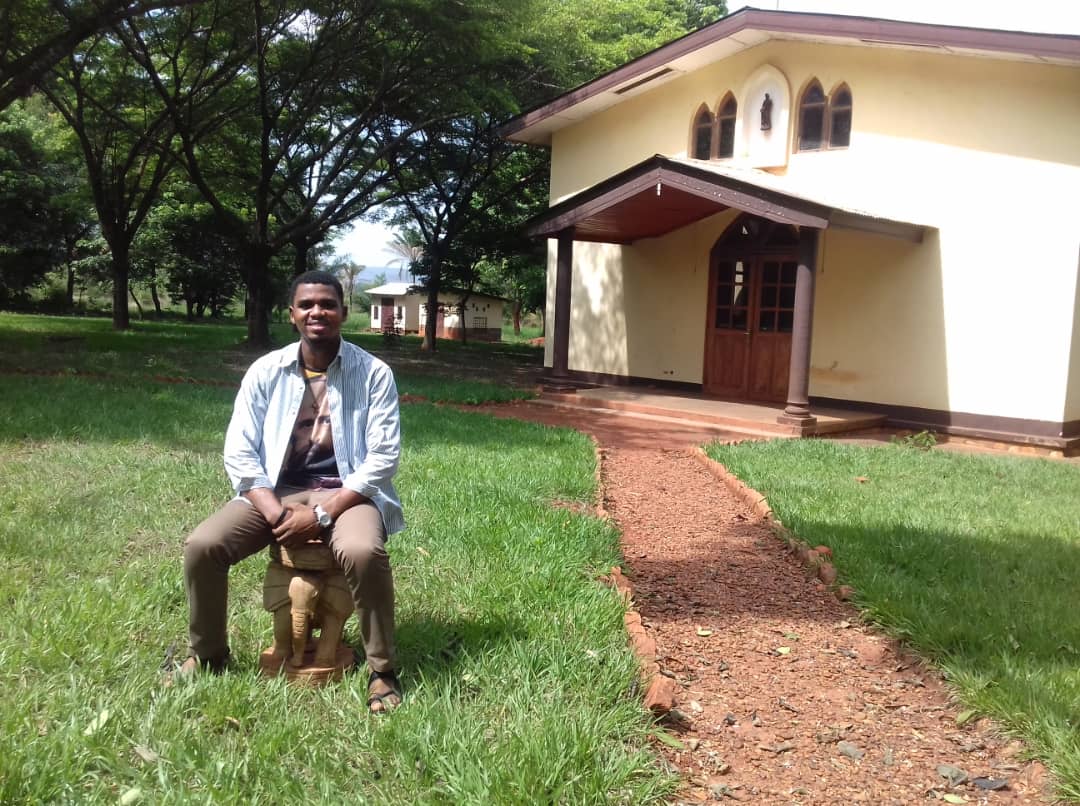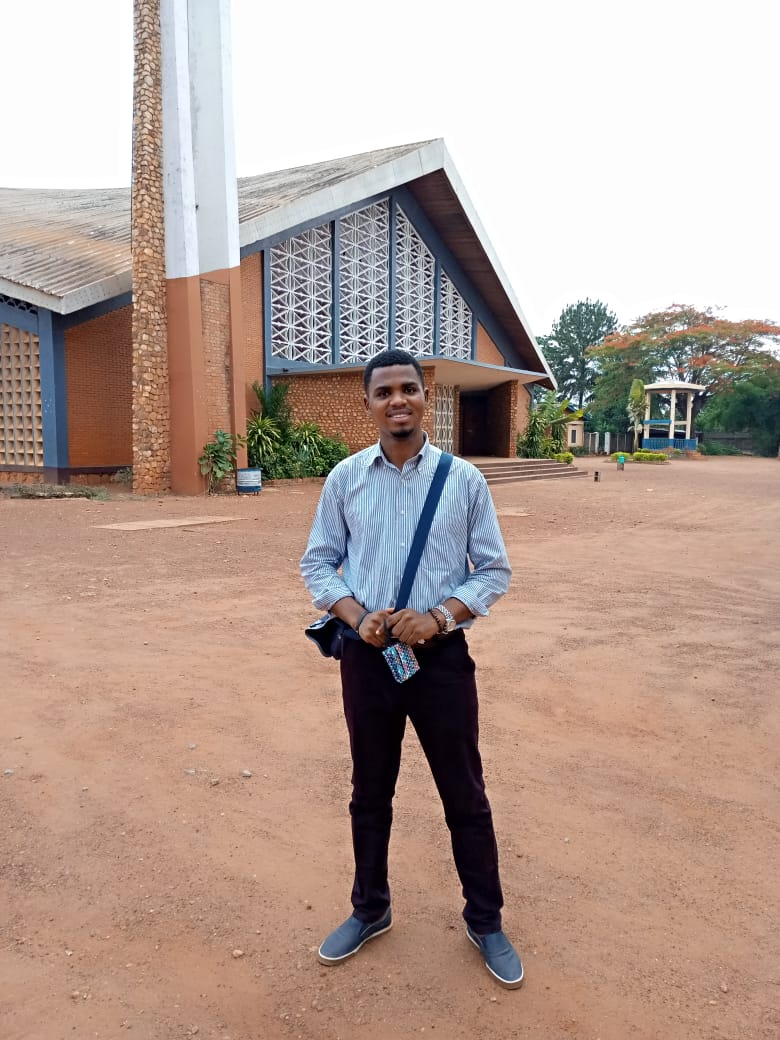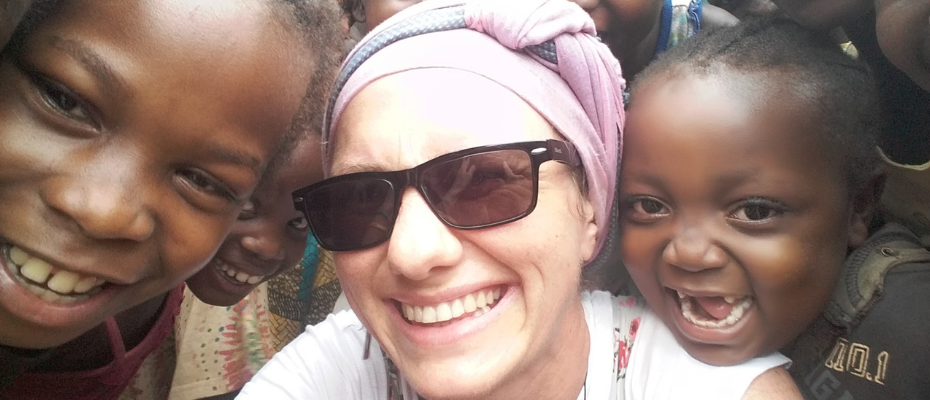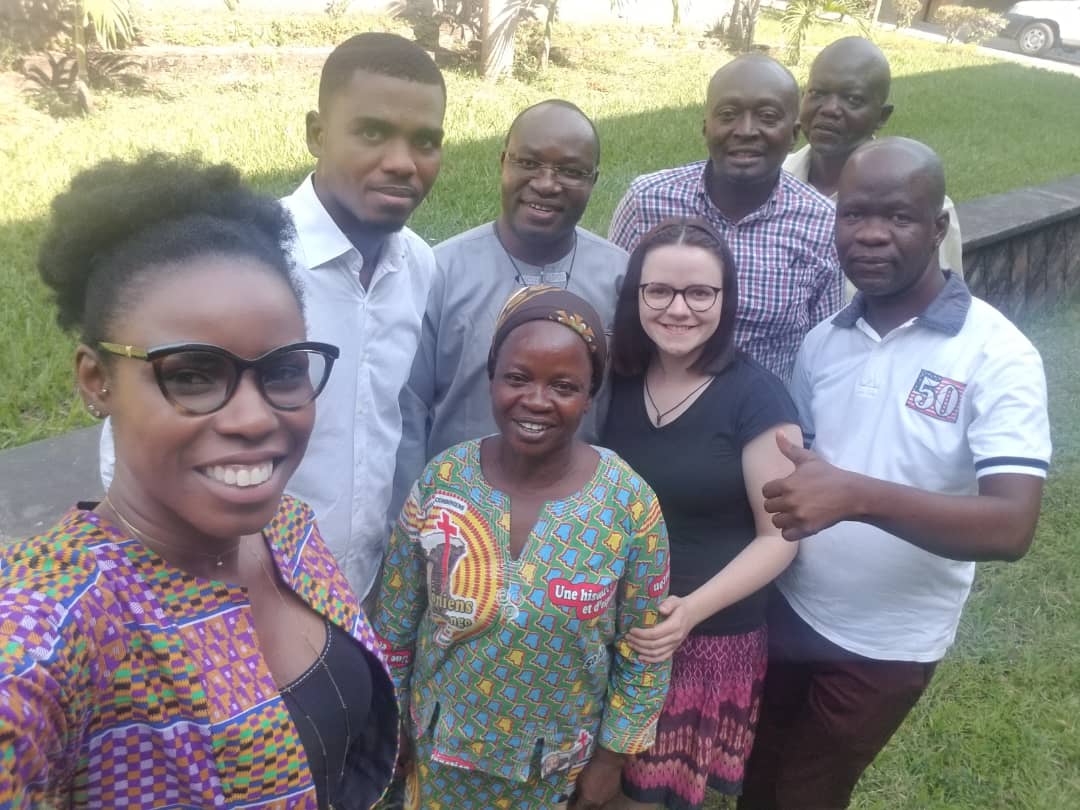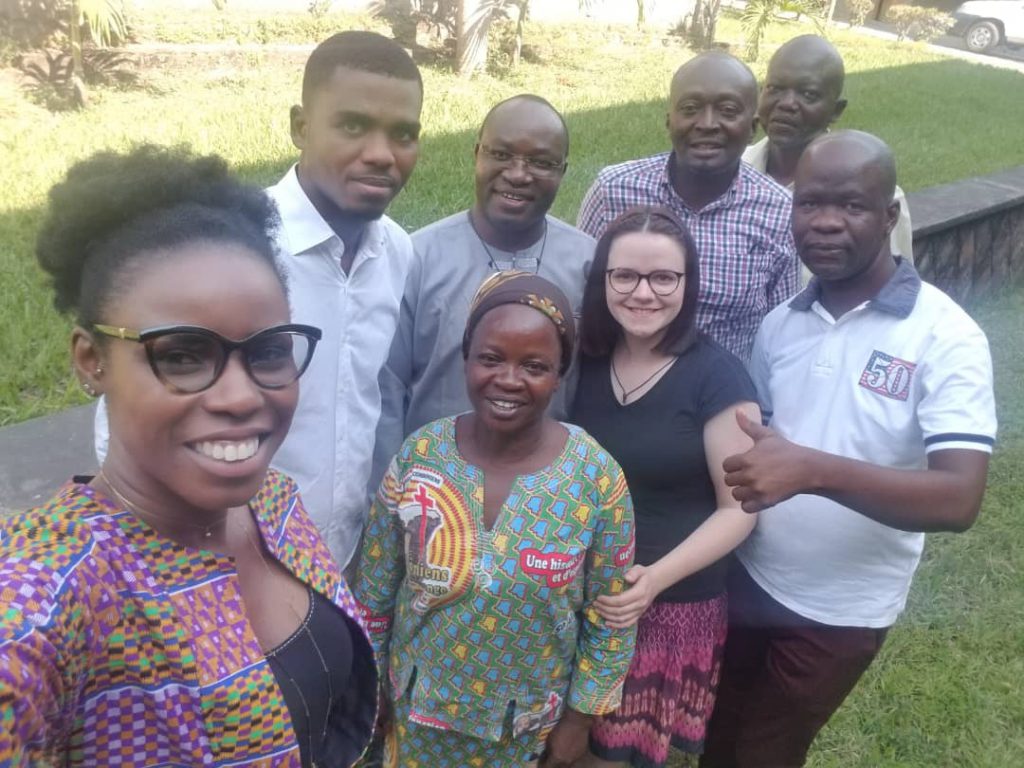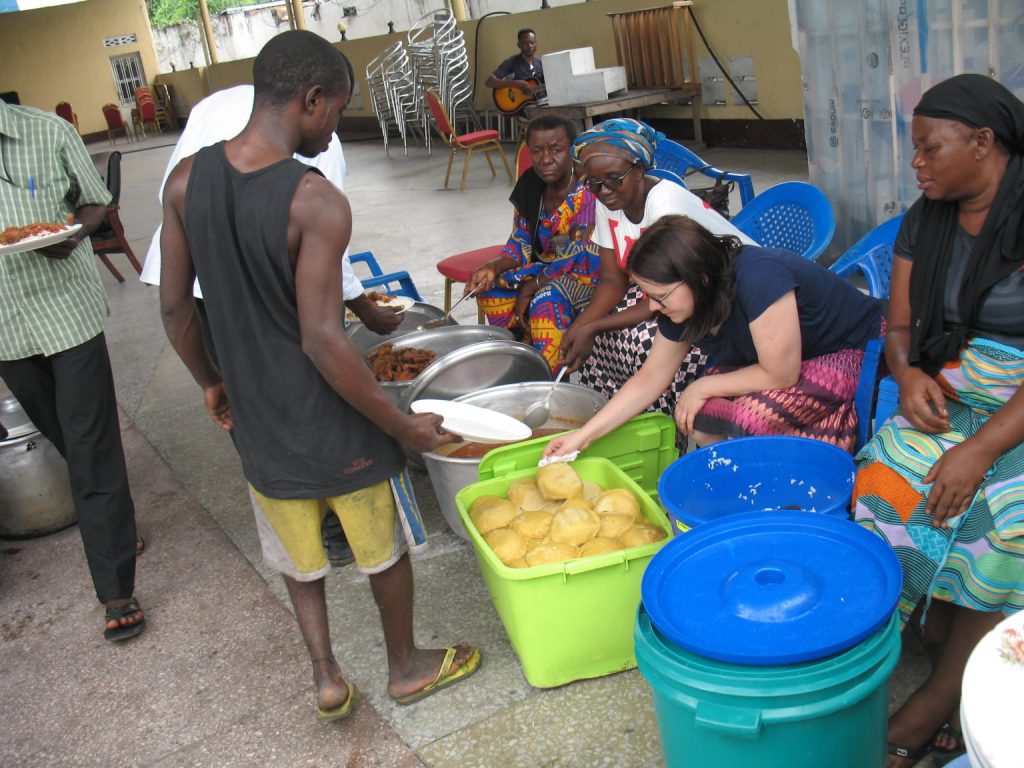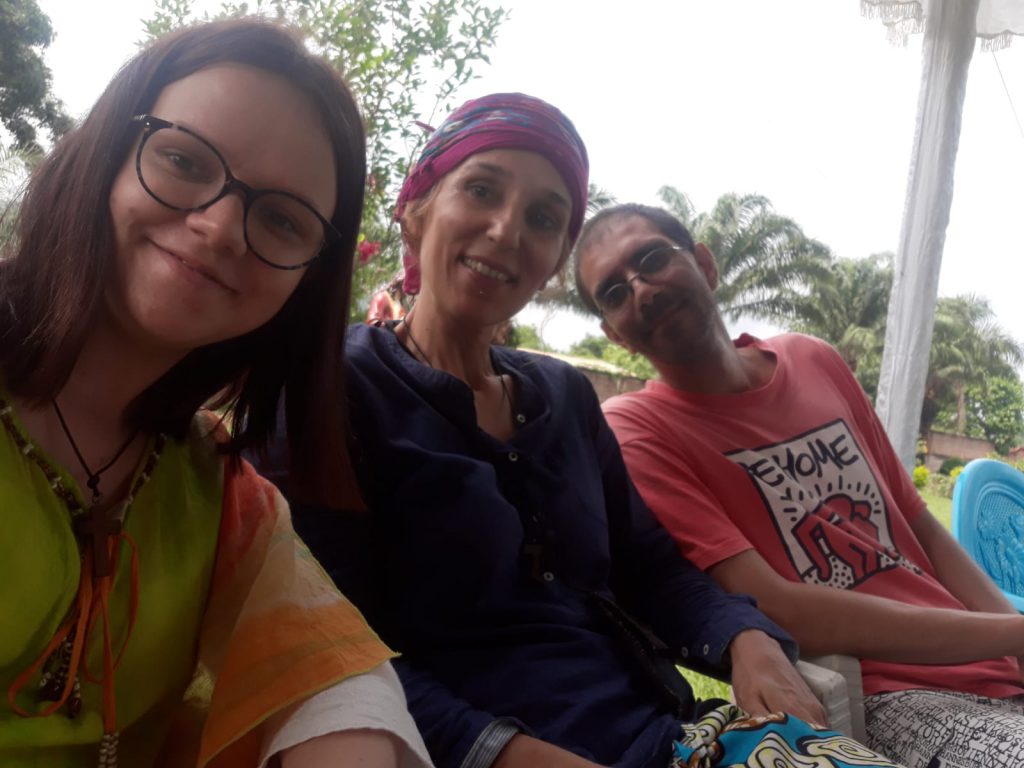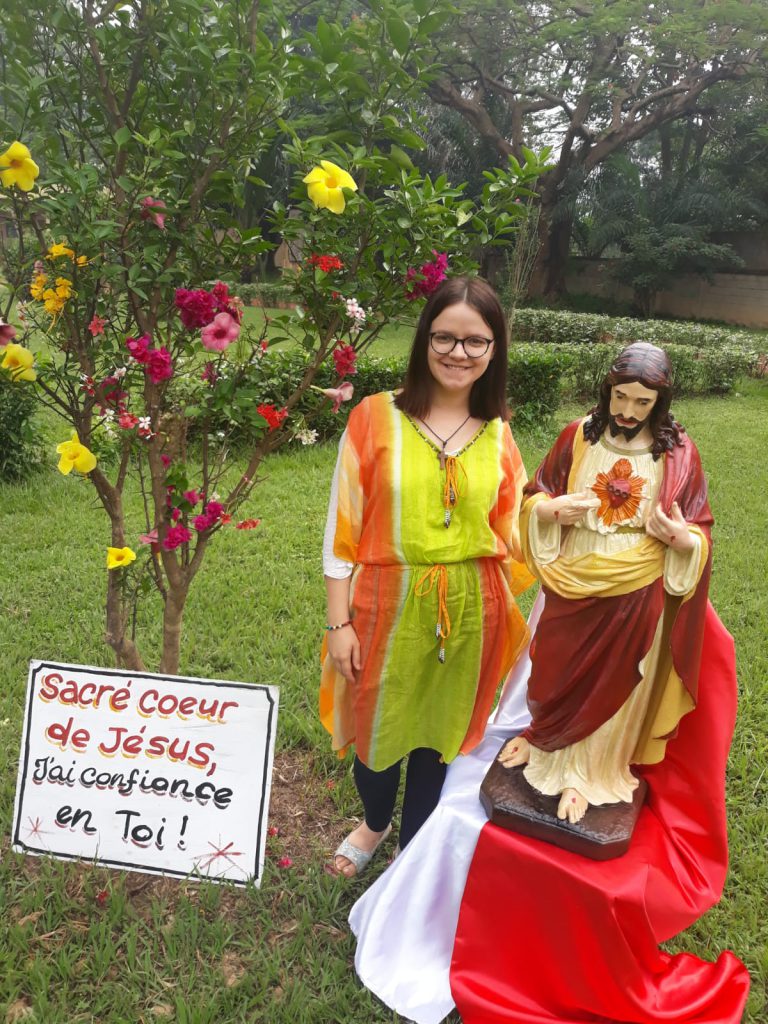She had never wanted to leave. She was dreaming about starting a family and live in Poland’s countryside, but one night in a Dominican church changed her life. Anna Obyrtacz, a CLM in the RCA, speaks of her vocation and her mission in Mongoumba, Lobaye, with the pygmies where she found God.
Reporter (R): Hi Anna! How did you receive your call to serve the Lord as a Comboni Lay Missionary?
Anna Obyrtacz (AO): I had never thought of mission. It had never been my dream or deep desire. I was a young woman looking forward to marriage and a good life in my country. But the Lord is great, and came looking for me to send me to his harvest. Me a missionary? At times, when I think of it I still find it funny, because for years it had never been a deep desire. But now, I assure you, I cannot think of my life without mission and daily I ask myself where this journey from the Lord will lead me.
I studied in Krakow, Poland, where I also started working. My meeting the Comboni Missionaries was totally accidental. For me perhaps, but not for God. It took place in March 2012 in a Dominican community I frequented. On that day, the Comboni Missionaries had organized an adoration.
R: And what happened next?
AO: After graduating and finding a job I continued my little life. I was thinking, as I said, to start a family. So, I was concentrating on my job and on my life of prayer, Mass, the Eucharist, daily prayer. Then, one day, I do not know why, I cannot say, I was inspired to join the student pastoral. It was a ministry called KOMPAS dealing manly with young people. On the invitation of a Comboni Missionary, I joined the team for a retreat. During this retreat I met several people, especially people involved in missionary activities around the world. I had the chance to talk with them about mission and about being a missionary. However, at the time I still had no thought of going to the missions.
R: But after this first retreat experience, you went to Africa. How do you explain it?
AO: Soon after that experience, I began to think of mission. The conversations I had had with the missionaries kept on coming to mind. So, I started having an interest in mission. I started knowing new people, especially among missionaries. Later I had the good fortune to be sent to Uganda for a month as a first missionary experience. It was in 2013. As I left Poland, I expected to find the worst in Uganda, but something within me was telling me that it was worth the try.
R: What was your first impression of Africa?
AO: I have a foggy memory, it was very hot (laughs). At first, I was under pressure and truly wanted to do everything I was told. We had passion, good will, but the language was our barrier. I remember the faces of the children in the orphanage where we worked, who wanted to talk to us, but since we only spoke English and they only spoke their local language, it was difficult. So, being unable to communicate, we simply stayed with them, without words, and this fact moved us deeply.
After spending a month in Uganda, I returned to Poland where I got in touch with the Comboni Missionaries to discern my vocation: to be missionary in Africa? Should I do it at home? Work? Get married?…
R: Did you struggle with these thoughts for a long time?
AO: Very often in life, monotony leads us to change life’s patterns. I thought that I needed to take time to discern my feelings. For this reason, having consulted people who were guiding me, I made a retreat with the Jesuits in Zakopane. It was a time of personal reflection, a meeting with my own self and with the Lord. During these precious days I spent with the Jesuits, the Lord answered all my worries and I also raised questions, but I trusted in Him. There are times in life when we have to learn to be “blind” and let the Lord guide us. In Polish we call it “seeing in the darkness.” You have to decide to step into darkness and let Jesus lead you.
Another facet of my vocation was the support of my family. They supported me a lot both at the beginning and then during my mission experience. I pray to the Lord that he may bless them and fill them with peace.
R: Why Africa and the Central African Republic?
AO: For the Comboni Missionaries Africa is a very special place. Our founder started his mission in Africa and had a real passion for the continent. At the time we had several options: Mozambique, Ethiopia and the RCA. RCA is a post-war country, very unstable, and many people were afraid to go there. There were many reasons to believe that mission in the RCA was going to entail lots of sacrifices: the poor, the war, insecurity, etc. What I dreaded the most was French (laughing). I had never studied it, you see? But I steeled myself with courage, especially following the example of Comboni, to serve the poor. Today I can truly say in all sincerity that the RCA is a marvelous country. Having come to the RCA, it has become like my second country.
R: How did you prepare to go to Bangui, considering your lack of French?
AO: It worked well. I officially joined the Comboni Lay Missionaries on June 12, 2015 in Warsaw before leaving for the RCA, where I was going to learn French. Then, we celebrated a mission sending Mass in my parish of St. John the Baptist in Oakwa on the feast of the Sacred Heart. The celebrant was Msgr. Grzegorz Rys. I went to Congo (RDC) for four months, where I was received by Irene, a Congolese CLM. She helped me understand the African mentality, especially in Central Africa. It was a great time, because I was not only there to learn the language. The day I left for Bangui, Irene gave this advice: “Remember that we are sending you to these people to try to understand them and to love them. Share with them what you have and you will find happiness.”
R: What were the first difficulties when you first arrived in the RCA?
AO: From Kinshasa, where we lived like we do in Europe, I found myself in a forest, without internet, electricity and hot water (laughing). At the beginning it was difficult. Difficult because I did not have many friends and had to start from scratch. But now I am happy, because I have gone much beyond friendship, and now I have a family.
R: What was your ministry in Mongoumba?
AO: The lay community of Mongoumba is made up of four people: one Italian, two Portuguese and I am Polish. We decide in common how to live and help each other. In Mongoumba, the lay people take care of education, the Pygmies and health. As for myself, I worked at the clinic. Concretely, I took care of the Pygmies first and then of undernourished children. Now and then we also organize sessions for the formation of caretakers, etc.
R: Is it a unique mission because of the Pygmies living there? And how do you help this minority?
AO: The Pygmies have a special place in our activities. They are a priority. In this part of the RCA they are not taken into consideration. These are the type of people that our founder wanted to know and serve. However, working with them is not that easy because, for example, they are very free people who do not like to be confined by a structure. Slowly, we teach them to read and write, to keep basic hygiene, how to avoid illnesses brought about by dirt, etc. I tried to show them other ways of life, to live independently, to administer the little money they have.
R: What are the needs in this area? What are the main problems affecting the RCA and its people?
AO: What we need most in the RCA is peace. Peace in the streets, in the hearts, in the cities. People want to live without fear, raise their children, work, grow. Th government must spare no efforts to ensure security for its people, who only want to live in peace. The other challenge for the RCA is education and the creation of business opportunities. Young people should be able to study well, in good conditions and find job opportunities at the end of their studies.
R: What are the dangers of missionary service in this region?
AO: In Mongoumba we are safe, being a rather secure area where we are not bothered. However, the RCA is very big and there are still areas where people are hiding, and live in constant danger because there is still armed conflict. Probably the only real danger is disease. Of course, there are medications available, but you never know where. God, however, always protects us.
R: What do you ask the world for the RCA?
AO: I ask one and all to support the RCA through prayer and especially with concrete help. I refer to help in the way of projects, financial contributions, etc. I also invite other lay people to come to this beautiful country.
R: Anna, what has mission in the RCA given to you personally?
AO: First of all, I learned to open up to other people, very often very different from the way I grew in a different culture. I learned to live frugally, humbly and be satisfied with what we have. This is one of the best experiences I have had. This experience also showed me that, when we leave our biological family, God gives another one.
R: What are your plans for your immediate future?
AO: After my vacation in Poland I will go to Canada for three years to study psychology. It is a program for missionaries. As I told you earlier, if God gives me life, I will return to RCA to bring psychological help specifically to those who have been traumatized by war and others. Back there, I will give hope to those who have been wounded and abandoned.
Interviewed by Eustache Michael Mounzatela
